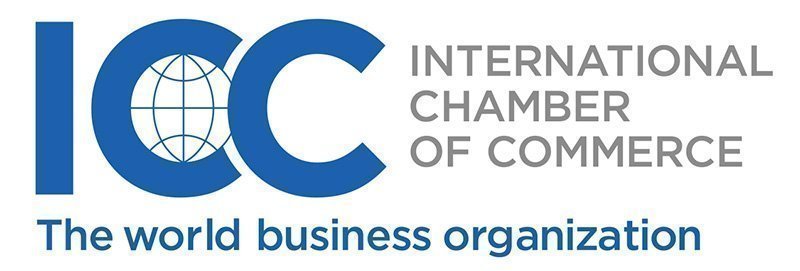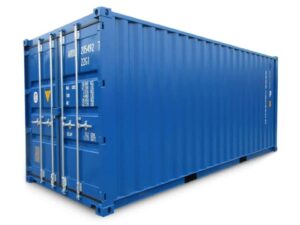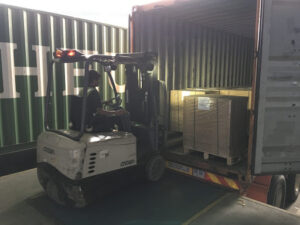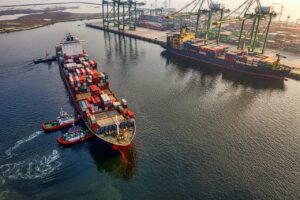Incoterms
The International Commercial Terms, or Incoterms®, are the regulations that apply to many of the commercial terms used by those in international trade. These terms were created by the International Chamber of Commerce (ICC) in 1923, although the terms were not referred to as such until 1936. These guidelines have been amended a number of times over the years. The most recent version and additional information regarding Incoterms® can be found on the ICC’s website.

Incoterm 2020, there is a list of 11 incoterms that define the sharing of risk and costs between the seller and the buyer.
The word INCOTERM comes from International Commercial Terms. In three letters, these terms reflect the distribution of costs (cost of transport for example) and risks between the different parts of a seller and a buyer.
They define certain obligations, costs and risks involved in transferring a product. Incoterms will help the buyer and the seller to clarify who will bear the costs. They will also help to specify the moment of the passing of the risk. Here is what they correspond to:
- E – GROUP: Used where the seller does not want to arrange transport. [EXW]
- F – GROUP: Used where the seller can arrange some transport within his/her own country. [FOB, FCA and FAS]
- C – GROUP: Used where the seller can arrange and pay for most of the freight charges up to the foreign country. [CIF, CIP, CPT, CFR]
- D – GROUP: Used where the seller can pay for most of the delivery charges to the destination country. [DPU, DDP, DAP]
EXW : EX-WORKS
The seller shall make the goods available at an agreed place at the outset (workshop, factory, warehouse, etc.) without completing customs formalities (export or import) and without loading on any collection vehicle. The buyer bears all transport, customs and risk costs to the final destination.
FCA : FREE CARRIER
The seller delivers the goods as soon as they have been cleared for export and made available to the carrier appointed by the buyer at the agreed place. Please note that the chosen delivery location has an impact on the loading and unloading obligations of the goods. If the delivery is made at the seller’s premises, he is then responsible for loading the goods. If delivery takes place elsewhere, the seller is not responsible for unloading.
FAS : FREE ALONGSIDE SHIP
The seller delivers the goods along the ship at the agreed port of shipment. The buyer takes care of loading on the ship and further transport, including import customs clearance. The Incoterm FAS imposes on the seller the obligation to clear the goods for export.
FOB : FREE ON BOARD
The seller delivers the goods on the ship at the agreed port of shipment. The transfer of risk takes place once the goods have been loaded on the boat by the seller. The buyer takes care of the rest of the transport, including import customs clearance.
CFR : COST AND FREIGHT
The seller manages the transport and its costs to the port of destination. He is in charge of export formalities and regulates the related duties and taxes. The buyer bears the costs upon arrival of the goods at the port of destination, and the import formalities (by paying the related duties and taxes). On the other hand, maritime transport insurance is assumed by the buyer, who assumes the risks from the time of delivery on the boat to the port of shipment. Unloading costs may or may not be included in the contract.
CIF : COST INSURANCE AND FREIGHT
The seller delivers the goods on the ship at the agreed port of shipment. The seller takes care of the export formalities and pays the related duties and taxes. The buyer bears the costs upon arrival of the goods at the port of destination, and the import formalities (by paying the related duties and taxes). The seller assumes marine insurance against the risk of loss or damage to the goods.
CPT : CARRIAGE PAID TO
Delivery is made to the first carrier abroad, expenses paid by the seller, without transport insurance. The buyer must assume all risks and other costs incurred by the goods after delivery. The CPT Incoterm requires the seller to clear the goods for export.
CIP : CARRIAGE AND INSURANCE PAID TO
The CIP Incoterm is identical to the CPT, however there is a difference regarding insurance. The seller is responsible for the transport insurance. The CIP Incoterm requires the seller to clear the goods for export.
DPU : DELIVERED AT PLACE UNLOADED
The Incoterm DAT (Delivred at Terminal) expands to become the DPU (Deliverd at Place Unloaded) with the revision of Incoterms 2020. This new Incoterm charges the seller to deliver the unloaded goods to the agreed destination (whether a terminal, warehouse or other…). However, if the place is not a terminal, the seller must verify that the place where the goods are to be delivered is a place where he is able to unload the products.
DAP : DELIVERED AT PLACE
The goods (not unloaded) are made available by the seller in the foreign country at the agreed place. The buyer bears the cost of unloading and import customs clearance.
DDP : DELIVERED DUTY PAID
The seller delivers the goods to the buyer, cleared through customs on import and not unloaded on arrival of any transport vehicle at the agreed destination. The goods are therefore delivered to the place of destination, ready for unloading. The seller normally also bears the costs of unloading. The seller must bear all costs and risks to transport the goods there, including, where applicable, any “duty” on import into the country of destination.






